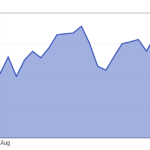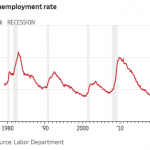Unemployment Compensation is Taxable – Plan Accordingly
It’s a little like throwing salt on an open wound.
You’ve lost your job and, yes, you have a safety net in the form of unemployment compensation on which to land, but the full amount really isn’t yours to use as you see fit, or need.
You see, every dollar of unemployment compensation is taxable, so it’s important you’re aware of this important point and plan accordingly.
Unemployment Compensation Tax Burden
Each state has its own base rate for unemployment compensation.
As a result of the Coronavirus Aid, Relief, and Economic Security Act (CARES Act) passed into law late last month, an extra $600 per week through the end of July 2020 was added to the unemployment compensation individuals will receive from the state in which they file.
This extra unemployment assistance payment from the federal government, as well as the base payment from the state, is taxable.
Basically, unemployment compensation is viewed as a substitute for a salary or wages, and is taxed as such.
Recipients can elect to have a flat 10% withheld for federal taxes by filling out Form W-4V when signing up for unemployment benefits.
Even though this will reduce the amount you receive on a weekly basis, it is probably the smart way to go.
Whether or not state tax is owed on unemployment compensation depends on the state in which you live.
The federal tax bill will come due no matter, so having the 10% automatically withheld will ease the tax burden, if not cover it entirely, when April 15, 2021, comes around.
In early 2021, individuals who received unemployment compensation during 2020 will receive Form 1099-G (think of it as a W-2 for unemployment “wages”) which will report how much unemployment compensation was received both to the individual and the IRS.
If no tax was withheld, the IRS will be expecting a payment on the “earned” unemployment compensation for 2020.
Wrap Up
Approximately 22 million Americans have already filed for unemployment benefits as a result of the coronavirus pandemic and the government-mandated shut downs to mitigate its spread.
Being furloughed, or losing your job outright, is difficult enough. Those filing for unemployment benefits, especially with the extra $600 per week the federal government has instituted to keep individuals as “whole” financially as possible, likely can breath a little easier.
But, how many of those 22 million are aware they’ll have to pay taxes on those unemployment benefits?
Likely, that’s the last thing on their mind…they’re just hoping to get the benefits flowing so they can pay their monthly bills.
State unemployment office personnel should let filers know about the tax requirement, but considering how overburdened these offices are, I’m sure it’s slipped through the cracks on more than a few occasions.
Which is why we published this post.
Whether you choose to have the 10% withheld automatically, or put off payment until next year, just be aware, the money you receive from both the state and federal government as unemployment compensation will be taxed.
It’s best to plan accordingly now, rather than be surprised in early 2021.
wallet image courtesy of scottchan at freedigitalphotos.net

:max_bytes(150000):strip_icc()/GettyImages-11255773531-386f2579eef3402c964613e62fda34a6.jpg?w=150&resize=150,150&ssl=1)

